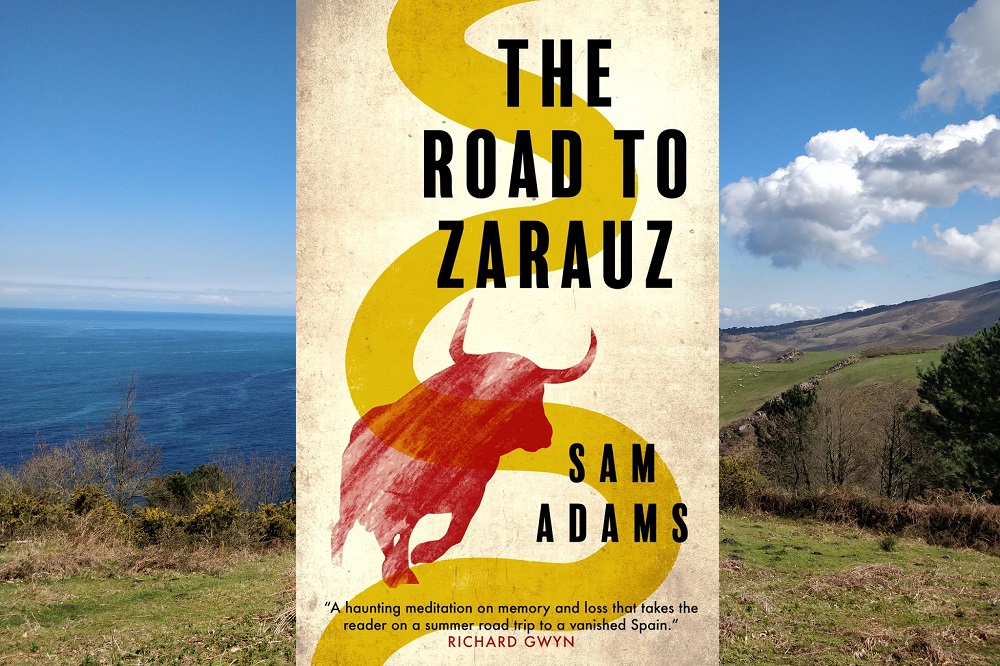Review: The Road to Zarauz is a tight, taut tale

Jon Gower
Sam Adams has been a distinguished feature of the Welsh writing scene for decades, as a poet and editor but the past decade has seen him turn novelist, with his first foray into the form appearing in 2010 with the literary detective novel ‘Prichard’s Nose.’ This was followed by the historical novel ‘In the Vale,’ set in the Vale of Glamorgan at the time of the Napoleonic Wars.
His latest is a tight, taut tale of four young men heading for a sojourn in Spain in the summer of 1954, the quarter being some of the very few such travellers moving around the country during Franco’s dictatorship.
Gwyn and Richie come from different sides of the south Wales valleys but have little in common. Gwyn is ‘quiet and solid, wary of uncertainty’ while Richie is ‘a congenital risk-taker, a flirter with fate.’ Alan is a former soldier and a mechanic who does the lion’s share of driving the old car the four of them bought at a snip from an old farmer. Alan is the ‘kindly and undemonstrative’ sort of leader so the others give him respect, not least because he’s the only one who knows where they’re going.
Something awful happens on the trip, as the unnamed narrator tells us pretty much at the beginning, something you cannot easily conceal from oneself because ‘like the murdered corpse, it will rise bloated to the surface of the lake, or in bony fragments jut from the shallow grave.’ So despite the sunlit setting of much of the book the shadows lengthen throughout the novel, as the trip, and thus the tale progresses.
Vivid
The novella interlaces the events along the way – an overnight stop in Paris, with its great avenues and prostitutes and the journey south of Limoges ‘a time of quivering heat, evanescent, dream-like.’ Nothing momentous happens along the way. The car runs out of fuel, the group gets lost, they stop to drink often foul wine, although one blessed evening they do manage to source a couple of bottle of decent Rioja. One night they accidentally park in the middle of a firing range, the sound of shells triggering panic in the usually unflappable Alan, who still manages to identify the sort of howitzers being used.
There are bullfights with the bullfighter’s blade ‘striking bone, bent double from the bull’s surge and the tensile strength of the metal’ and torrential storms and plenty of talk about books, from the expected Hemingway to the slightly less predictable conversations about Gerard Manley Hopkins, Yeats and Wordsworth. And of course, because this is a road-trip of a novella, there are brief flashes of landscape, still vividly alive in the young man’s memory banks even after the long years:
“It was Lerida. First an exuberant celebration of green – green crops, tall green trees – announcing a river, then reddish roofs, towers, lancing reflections of early evening light from the windows.”
The book drives – if you pardon the pun – toward a pretty brisk account of the death of one of the men before the three men drive for home. They are leaving a by now vanished Spain and this brief holiday in the sun will have changed them.
For the remaining three men who took the road to Zarauz, with its dark curtains of storm and endless sweep of beach, they know that this was the place where, indubitably, their youthful dreams had ended, shattered like Guernica.
Support our Nation today
For the price of a cup of coffee a month you can help us create an independent, not-for-profit, national news service for the people of Wales, by the people of Wales.






